Herbal Medicine



Oriental herbal Medicine is complimentary therapeutic modalities that are often used together in the treatment of a variety of medical conditions.
Over the past 5,000 year, Oriental Herbology has evolved into an art form of its own. Ancient herbal information was gathers, compiled, formulated, tested, and handed down from generation to generation. Today, practitioners of Oriental medicine continue to prescribe herbal formulas because they work extremely well.
Oriental herbal formulas combined this way offer specific synergistic actions and effects upon body and mind. The art and skill of creating a formula lies within choosing the precise and most effective herbs that target an individuals disharmony. It is important to work with a qualified herbalist who can prescribe the correct formula, monitor progress and adjust it as needed.
Herbs are a powerful way to rebalance and nourish the body with very few side-effects. Unlike most Western drugs, herbs are combined into a complex formula that address the patient's entire condition, not just one particular symptom. Most Western drugs can be used to control symptoms but do not alter the disease process. For example, antibiotics kill bacteria but do not improve a person's resistance to infection; diuretics drain excess fluid from the body but do not improve the kidney function.
Chinese herbs not only address symptoms, they also nourish and balance the body in very specific ways, thereby improving organ function and immune system. Herbs are categorized into two groups The first group is called “food herbs” which are prescribed as part of one’s diet for general fortification, prevention and maintenance. The other group is called “medicinal herbs” which are dispensed to each patient as an individual formula based on one’s constitution, environment and medical condition. Herbs are also used for prevention and maintenance. It can restore and fortify your body to its optimal condition.
Over the past 5,000 year, Oriental Herbology has evolved into an art form of its own. Ancient herbal information was gathers, compiled, formulated, tested, and handed down from generation to generation. Today, practitioners of Oriental medicine continue to prescribe herbal formulas because they work extremely well.
Oriental herbal formulas combined this way offer specific synergistic actions and effects upon body and mind. The art and skill of creating a formula lies within choosing the precise and most effective herbs that target an individuals disharmony. It is important to work with a qualified herbalist who can prescribe the correct formula, monitor progress and adjust it as needed.
How does it work?
Herbs are a powerful way to rebalance and nourish the body with very few side-effects. Unlike most Western drugs, herbs are combined into a complex formula that address the patient's entire condition, not just one particular symptom. Most Western drugs can be used to control symptoms but do not alter the disease process. For example, antibiotics kill bacteria but do not improve a person's resistance to infection; diuretics drain excess fluid from the body but do not improve the kidney function.
Chinese herbs not only address symptoms, they also nourish and balance the body in very specific ways, thereby improving organ function and immune system. Herbs are categorized into two groups The first group is called “food herbs” which are prescribed as part of one’s diet for general fortification, prevention and maintenance. The other group is called “medicinal herbs” which are dispensed to each patient as an individual formula based on one’s constitution, environment and medical condition. Herbs are also used for prevention and maintenance. It can restore and fortify your body to its optimal condition.
How does it help?
Herbs can be used to treat a variety of medical conditions, such as ;
Strengthening
the immune system
Relieving anxiety and depression
Promoting digestion
Increasing energy
Balancing hormones
Improving sleep
Treating gynecological disorders
Improving athletic performance
Enhancing organ function
Strengthening libido
How is it made?
Herb Formulas are developed to use each herb to its greatest advantage. By combining different herbs, we not only adjust and increase the treatment results, but also reduce or release the side-effects from the other herbs. That's why few Traditional Chinese Medicine doctors prescribe only a single herb to treat patients. A formula is typically made from 10-15 herbs with appropriate dosage depending on the patient's condition and the treatment principle. Traditional herbal formulas are generally made in the form of liquid tonics, pre-packaged in a single-serving pouch for convenience. It is also available in pill/granule form for those who do not have the time or the taste for the traditional liquid form.
How does it taste?
Because tonics are primarily made from root and bark extracts, where the strongest medicinal ingredients are found, they tend to be bitter in taste. However with continued use, the bitterness should subside. Are there any side effects?
Compared with conventional over-the-counter Western drugs, oriental herbal medicines have very few side effects, if any. When prescribing herbal formulas, various components are included to minimize the side effects and to enhance the healing process.
Oriental herbal medicine is a safe, effective and drug-free way to become well and stay health, naturally!

